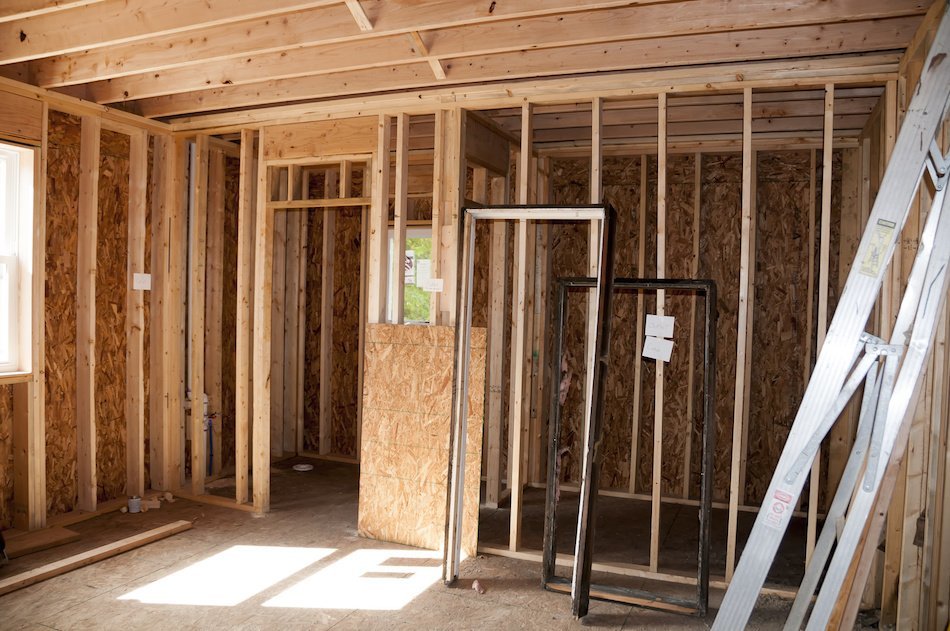A Guide for Planning Your New Home Addition
Posted by Gary Ashton on Tuesday, March 26th, 2019 at 9:45am.
 Homeowners have many options to change the look of their homes. Some homeowners may choose to do extensive remodels, while others may decided to add a home addition. Instead of a remodel, homeowners may appreciate the increase in space for relaxation, entertaining and more with a home addition. However, any change to the structure of a home should warrant careful thought and planning. In many instances, special permits may be required before a home addition can begin. In fact, there a number of considerations prior to starting work on a home addition that will help a homeowner get the most from their new addition.
Homeowners have many options to change the look of their homes. Some homeowners may choose to do extensive remodels, while others may decided to add a home addition. Instead of a remodel, homeowners may appreciate the increase in space for relaxation, entertaining and more with a home addition. However, any change to the structure of a home should warrant careful thought and planning. In many instances, special permits may be required before a home addition can begin. In fact, there a number of considerations prior to starting work on a home addition that will help a homeowner get the most from their new addition.
Get a Clear Overview
Homeowners may need to prioritize their needs and should begin their planning process by identifying key objectives. Understand what problems may need to be solved or the end goals of having a home addition. Boosting storage capacity, adding living space or improving the traffic flow in a home are all common goals for homeowners.
Check out magazines and buying guides for information on the type of home addition that would help meet those objectives. Inspiration can also occur from tours of new homes in a community. Get an idea of what must-haves, such as a getaway space or a kitchen island, should be included in the design stage.
When Are Home Additions Are a Bad Investment?
Not all home additions are made equal. In fact, some can even hurt your home’s value, despite offering utility to your household. To hold any value on the market, the addition must speak to the needs of the buyers in structure and function. Converting a garage into a bedroom, for example, can prove disastrous in areas with minimal driveway and on street parking.
Home additions are also a bad investment if they are not well done. Homeowners must have a licensed, bonded and insured contractor perform the work to complete a quality addition. Cutting corners on labor and materials only serves to decrease the return on investment for the addition due to its obvious shortfalls.
If the addition makes the exterior home design stick out like a sore thumb, the value and marketability of the home could decrease as well. For the best ROI, the addition should look subtle enough that the home still fits into the neighborhood aesthetic. Considering these factors can help you plan a home addition that turns out to be a great investment.
Finance a Home Addition
Time and money are factors when implementing a design. Are there any constraints that need to be accounted for before taking on a project? How long can the family handle construction in a home? Are there any additional expenses coming up that may delay or interrupt construction? Working around such issues can make for a smoother experience when it comes time to build the addition.
How are you planning to pay for the new addition? Some homeowners may have money socked away specifically for the project and others may choose to take out a home improvement loan. Homeowners taking out a loan may need to consider their current financial situation and the amount of monthly payments that may be required. Other savings or investments may also be used to finance a home improvement project.
Follow the Guidelines and Get Permits
It may be necessary for the homeowner or licensed contractor to investigate what structures may be built on a piece of property. It's may also be a good idea to hire a construction/remodeling manager to oversee the project. Homeowners should investigate about any setback restrictions which can change the location or positioning of an addition. Building area ratios, historic-district preservation ordinances and height restrictions may affect some homeowners planning a home addition. This is why it may be necessary to head to city hall prior to starting any construction, as these types of limitations can alter the plans of the addition.
There may also be zoning codes and local building standards when it comes to constructing a home addition. Homeowners who choose to build a home addition on their own or go with an individual who is not properly licensed may increase the possibility of safety hazards and injury. Substandard work may lead to substantial fines for homeowners as well, should the unlicensed work be discovered.
And most importantly, it may be more difficult to sell a home with out the required permits for a home addition or renovation projects that may have altered the structure of a home.
Safety Comes First
A home addition can be a wonderful way to increase living space in a Clarksville neighborhood home. However it necessitate planning and permits before starting on construction. Homeowners want to ensure that their new home addition meets all codes and standards and will not jeopardize the safety of occupants.

Gary Ashton
The Ashton Real Estate Group of RE/MAX Advantage
The #1 RE/MAX team in the World!
